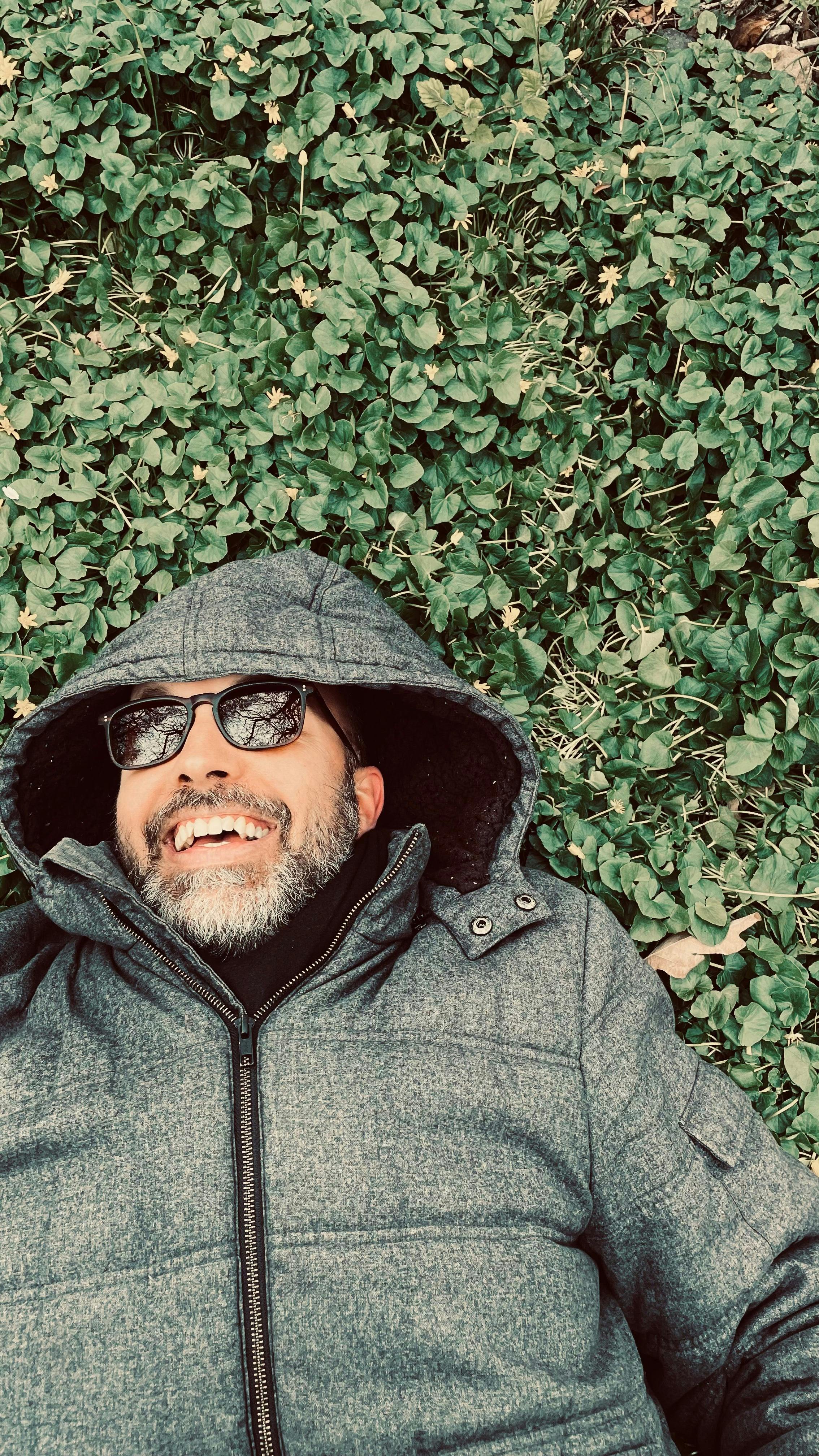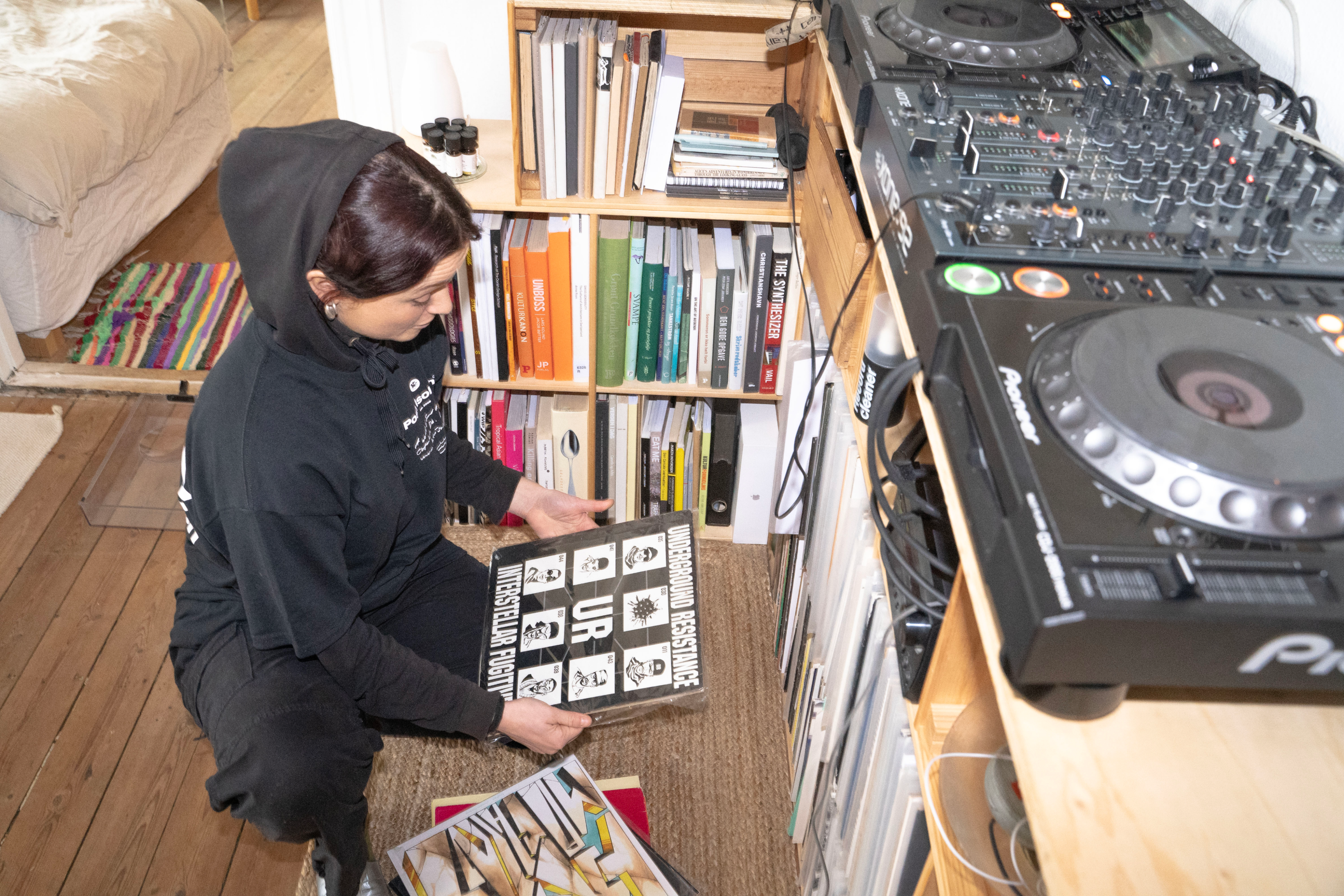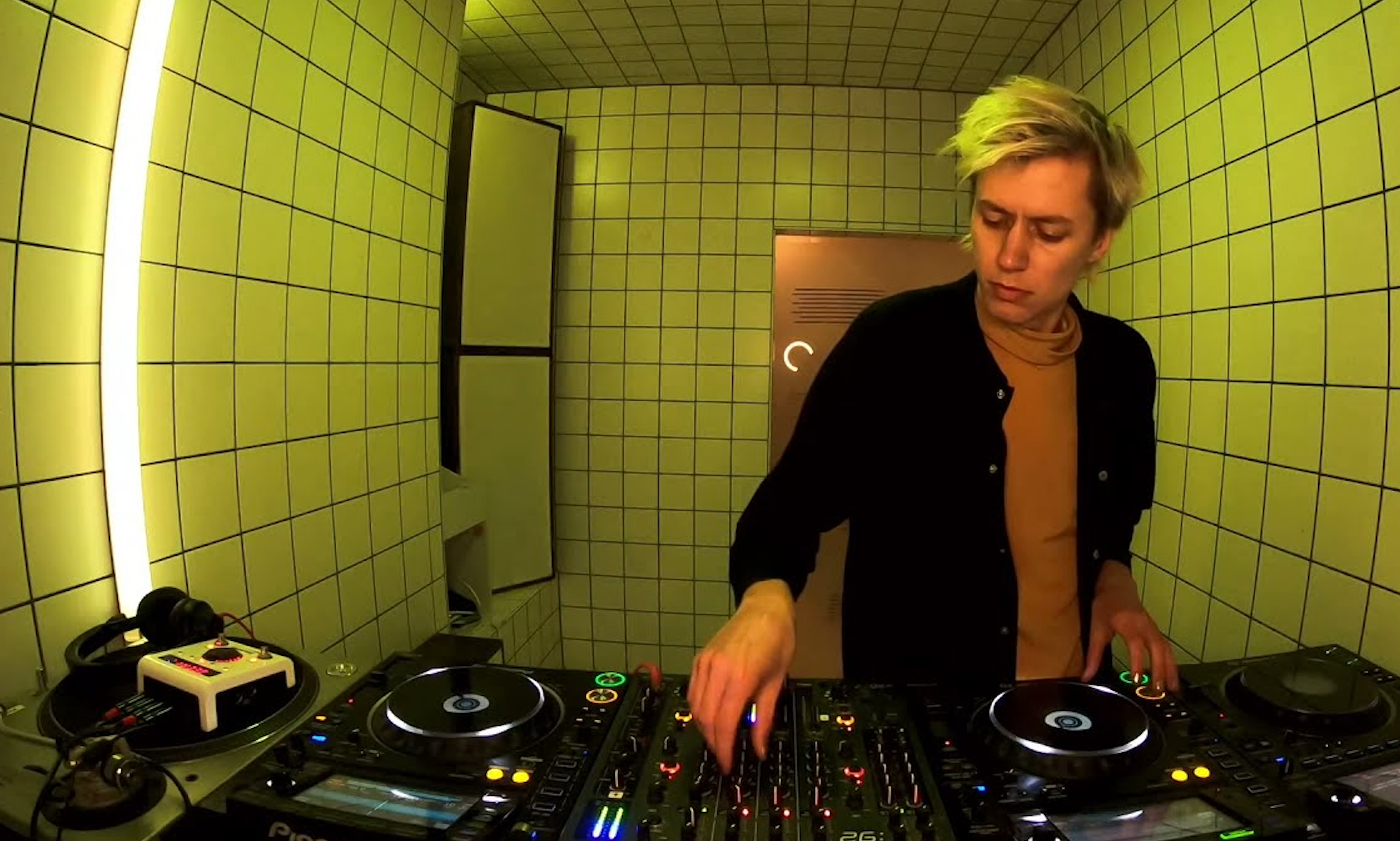Interview: Christian d’Or—on Record Culture and Keith Haring
Ahead of launching the AM Clean Sound x Keith Haring collection, we spent a day listening to amazing records, immersed in the inviting company of Christian d’Or—the Copenhagen-based DJ, producer, and record-centric renaissance man who just so happens to be a major Keith Haring fan.
Interview and text: Ulrik Nørgaard
Photos: Nikolaj Møller

Over the course of the last 15 years or so, Christian d’Or has been a permanent, leftfield fixture on the Copenhagen music and nightlife scene. His compelling, personal take on the culture of music coupled with his ability for matching the records of old with the sound of now, has seen him carve out a resilient space for himself within the restless Copenhagen music scene.
Reducing Christian’s wide-ranging output to a few introductory sentences is challenging; growing up as a hip hop kid in Holstebro, Denmark, his love of the vinyl record pushed him further into nuanced musical horizons and increasingly esoteric vibrations. Today, Christian’s name represents a singular perspective on musical freedom, centered around the amorphous blobs of energy known as soul, jazz, disco, house and psychedelia. If an unholy human hybrid of Skatebård and DJ Harvey walked the Earth and ran a music-flavored vintage store in Copenhagen’s culturally diverse Nørrebro neighborhood, it might look a lot like Christian d’Or.
When you step into the Nørrebro apartment there’s a sense that you’re being gently and consensually soft-armed into casting cynicism aside and submitting to the disarmingly enthusiastic workings of Christian's record-centric mind. Literally fresh off the boat of a Copenhagen Distortion boat rave as well as a big gig at one of the annual festival’s main stages, the experienced selector and producer not only knows his ways around his Technics—he’s also very skilled at communicating why and how he loves his treasured records.
Our conversation with Christian touched on a variety of music and sound-related topics: the benefits of analogue audio in a digital world; the future of the vinyl record; and the storied legacy of Keith Haring’s timeless pop art activism.

—Hi Christian, what’s going on in your life?
I’m DJing a lot again, minding my store a bit less and trying to find balance in everything—as always.
—Do you still produce and make music?
Yes, I regularly record new stuff with Niels (AKA Vinnie Who—ed) in his studio on Møn. We’re working on both his and my upcoming releases.
—How was Copenhagen Distortion?
Amazing. I got a bit of both worlds; a very intimate boat rave with 150 guests and a good night at Forest Stage on Ø (The Distortion Festival Area—ed)
—Tell us about the first vinyl record you bought?
Ha, that record is actually standing somewhere on my shelf in the singles section. It was a French hip house 7’’ featuring someone called Benny B & Daddy K both of whom looked really cool to 9-year-old Christian. ‘Vous Etes Fous’ was probably a big hit in France—I have no idea how it found its way to Center Musik in Holstebro, Jutland.
—How would you describe your relationship with vinyl?
Music means the world to me and I’ve always listened to music on records. When everyone bought CDs, hip hop fans like me held on to the records. And then I became interested in samples and breakbeats, which you could only find on the old records. All of a sudden I was listening to all kinds of delectable stuff. Adding to that, I’m a fairly nostalgic person and when you’re holding an object from a different age, that object carries with it some of the age it was created in. I guess I find a satisfying calmness in that. Also, the records are my work tool, meaning that I quite simply make a living from playing them.
‘I’m a fairly nostalgic person and when you’re holding an object from a different age, that object carries with it some of the age it was created in. I guess I find a satisfying calmness in that.’

—Is sound a factor in your vinyl-buying?
Yes, I always go for the press with the best sound quality. Regarding the discussion around analogue vs. digital sound, there’s no doubt that a lossless digital file sounds amazing, but that’s just not what they offer on streaming services.
—Do you think vinyl records will be around for a long time to come, or will it be replaced by other formats?
I think we’ll keep listening to records. I don’t think vinyl will necessarily grow in a couple of years; the trend will die (inshallah) and vinyl will go back to being for the few who can’t function without records in their lives.
—Are you good at taking care of your records?
Yes. Some records probably get more care than others.
—Do you have a certain ritual when it comes to record maintenance
I don’t really, no. And I don’t think I’ll get one. The most ritualistic thing I do is put on ambient or jazz when my girlfriend isn't around. I’ll lie down on the carpet and fall asleep. When I’m in that mode, I tend to listen to records that aren’t suitable for anything other than just listening.
—When did you first start to notice Keith Haring’s work—and what was it about it that caught your attention?
In my early youth, his stuff kept popping up in conjunction with hip hop and skate culture and on record covers. When I got older and more interested in art and the history of club culture, he was also omnipresent. It spoke to me in a very clear and immediate way.
—Why are you a fan of his work?
I admire the expression, the speed in the execution and the control. It’s an extremely satisfying trinity.
—In your opinion, why do you think Keith Haring’s art continues to be relevant to popular culture?
First and foremost because it’s great art. And the expression communicates so clearly and quickly—that works really well in a fast-paced world. Also, his messaging is super topical today. It’s about sexual identity, liberation, oppression pop culture, shame…
‘it’s great art. And the expression communicates so clearly and quickly—that works really well in a fast world. Also, his messaging is super topical today. It’s about sexual identity, liberation, oppression, pop culture, shame…’

— You have a store in Copenhagen called Mother Interior—could you tell us about the concept behind it?
I run it with my girlfriend, and it's a store featuring all the things we like to surround ourselves with. Beautiful music, nice furniture, great ceramics. Old, pretty things. The idea came when I finally had some spare time on my hands and time to think during covid. All my gigs were canceled from one day to the next, meaning that 1000 kg of stress was lifted from my shoulders. For the first time in 10 years, I was able to make a plan with a longer perspective than my next booking. In other words, Mother Interior was born. It’s a wonderful little store with a lot of coffee-drinking.


